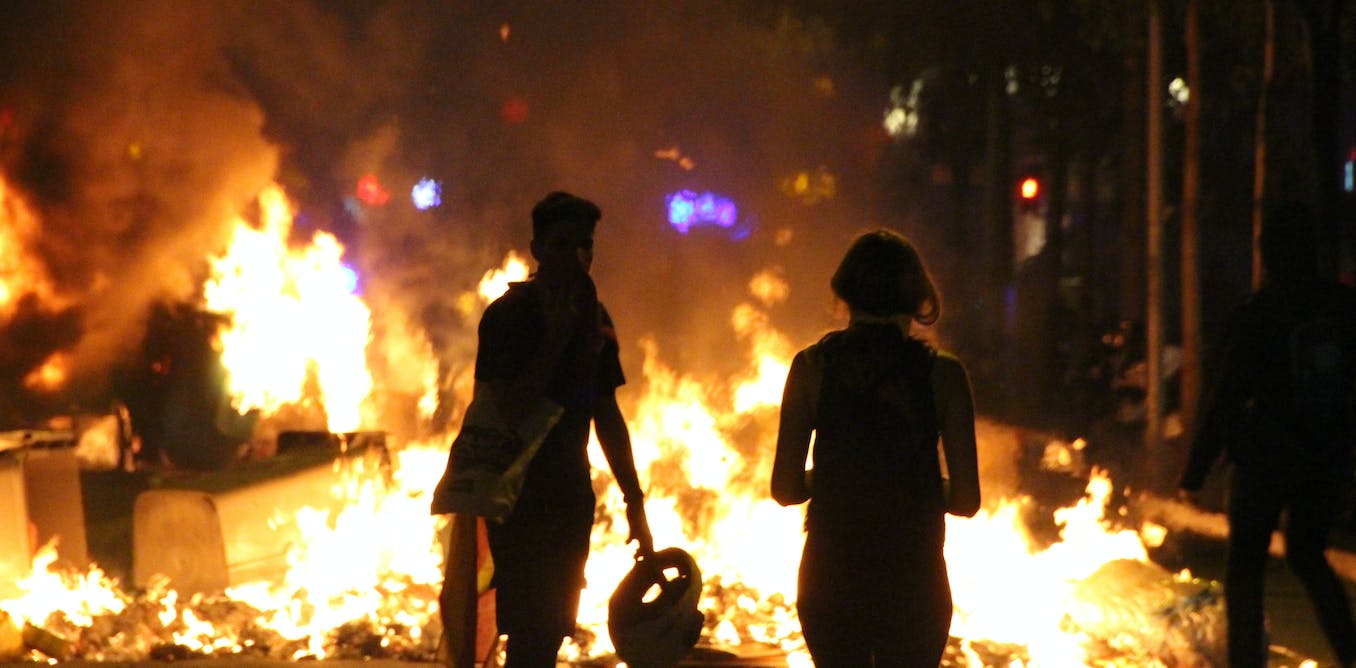Spain has undergone a period of great political uncertainty and upheaval since since general elections delivered an inconclusive result in July.
In order to hold on to power and gain support from regional parties, incumbent Socialist prime minister Pedro Sánchez has made deals with various political forces. One of these is the controversial law that grants amnesty for those who faced criminal charges for their role in the Catalan independence procés, specifically with regard to two events: the non-binding consultative referendum held on 9 November 2014 and the referendum held on 1 October 2017.
There has been fierce debate in Spain regarding the constitutionality of the amnesty law. Among its beneficiaries is Junts Per Catalunya, the party of hard line separatist politician Carles Puigdemont, who will be able to return from exile as a result of the pardon. It has met with strong opposition from a very large segment of the general public, as well as the rightwing People’s Party and the far-right party Vox.
The law – entitled organic amnesty law for institutional, political and social normalisation in Catalonia – is being processed through urgent legislative channels, minimising the ability of parliamentarians to scrutinise it.
Its authors are evidently aware of the intense and sustained opposition to the measure, as they have taken special care to justify its adoption in an extensive explanatory memorandum. In this, they explain the law’s precedents, purpose, content and, above all, its constitutionality.
Public interest or garnering support
The acts covered by the bill are the following:
-
The organisation and execution of the 2014 and 2017 referendums.
-
Other possible offences connected with the referendums (including those committed before or afterwards). The Explanatory Memorandum mentions preparation for these events as an example.
-
Various protest actions in favour of allowing these events to take place, or that opposed the prosecution or conviction of those responsible.
-
Attendance, assistance, advising or representation of any kind.
-
Providing protection and security for those responsible.
The law grants amnesty for the following crimes, regardless of how or by whom they were committed: usurpation of public functions; embezzlement; acts of disobedience; public disorder; attacks against the authorities, their agents and public officials; misconduct committed with the intention of claiming, promoting or procuring the secession or independence of Catalonia.
The amnesty also applies to actions taken by police officers in attempts to prevent crimes, and for administrative offences linked to either of the referendums or the procés in general. A number of exclusively criminal cases related to very serious crimes are excluded from the amnesty law.
The justification for this exceptional measure – and its fast-tracked passing – is public interest. The law aims to guarantee coexistence between Catalonia and Spain within the rule of law, with a view to stabilising the social, political and institutional situation and guaranteeing a peaceful path forward for both parties. According to this argument, it provides a base from which to overcome a decade of political conflict. However, its detractors state that it is only motivated by the need to obtain investiture votes from pro-independence parliamentary groups.
The explanatory memorandum points out that Spain’s Constitutional Court has previously declared other amnesty rulings to be constitutional. It states that the Constitution does not prohibit amnesty, and that the ruling violates neither the principle of jurisdictional exclusivity nor that of equality among the parties involved. It also says that amnesty exists within various Spanish legal norms to provide grounds for terminating liability. Its critics, however, argue that the bill violates the principles of separation of powers and equality.
The charges being dropped
The law stipulates a number of key actions to be taken in criminal and administrative fields.
Amnesty subjects who are currently in prison will be immediately released. In addition, their criminal records will be expunged and arrest warrants – be they national, European or international – will be lifted. Furthermore, when the law enters into force all precautionary measures taken with respect to amnestied acts will be lifted, and the relevant criminal sentences will no longer be enforced.
In terms of administrative issues, the relevant bodies will agree on the definitive closure of any procedure initiated, and precautionary measures will be lifted. In the case of public employees who have been sanctioned or convicted – for example headteachers who allowed their schools to be used as referendum polling stations – their rights and jobs will be reinstated.
Shutterstock
The amnesty will also mean that outstanding civil and fiscal liabilities are dropped, with the exception of sentences or penalties that have already been served. It is important to note that the amnesty does not include civil liability for damages suffered by individuals.
Lastly, the amnesty will not entitle anyone to compensation of any kind, nor will it generate any other economic rights. It will also not entitle its subjects to reimbursement of fines that have already been paid.
A law destined for the constitutional court
Once the law enters into force, the rulings are expected to be adopted within a maximum of two months, though this is not binding and does not preclude the possibility of further appeals. A limitation period of five years is established for any action related to the recognition of statutory rights.
Debate on the law in Spanish parliament is expected to be tumultuous, with continued street protests anticipated during the proceedings. It is expected to get the majority vote of 176 votes needed to pass in Congress, but it will then undoubtedly be subject to constitutional review. This will come by way of an appeal in the Constitutional Court and questions from judges, and will very possibly lead to a divided verdict.



